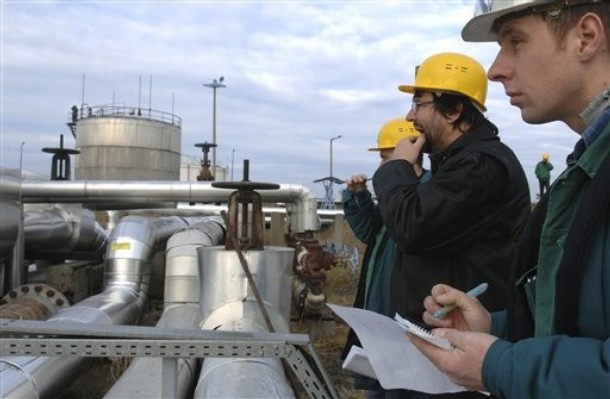
The Strategic Implications of Russian Move Against Hungary’s MOL
Publication: Eurasia Daily Monitor Volume: 6 Issue: 77
By:

The European Union remains a passive bystander to Russia’s attempted capture of MOL, the Hungarian oil and gas company (EDM, April 3, 6). The Kremlin-connected Surgut Neftegaz became the single largest shareholder in MOL, literally overnight, through surreptitious acquisition of Austrian OMV’s entire 21.2 stake in MOL on March 30. Surgut, a company known to lack transparency, has hinted that it intends to take over MOL in due course through vertical integration. Whether this intention is real, or a cover for another Russian entity that would step in after Surgut remains unclear.
What Surgut and the Russian Ministry of Foreign Affairs portray as an ordinary "market transaction" transaction is in fact an adversarial strategic move into EU territory, with far-reaching implications for Hungary, Central and South-eastern Europe, and the EU itself in terms of energy security and policy. Yet the EU’s policy-making and regulatory authorities keep silent in the face of this predatory raid.
The move forms part of Russia’s policy to obtain and expand control of oil and gas pipelines and processing plants in EU territory by state-controlled Russian companies. Surgut, however, is not necessarily -or not primarily- interested itself in MOL’s oil refineries. The stakes are far greater because of Hungary’s and MOL’s unique strategic positions in the wider region.
In the oil business, MOL owns the most efficient refineries in Central Europe, with a combined capacity of more than 15 million tons annually, including one in Slovakia with a major role in that country’s economy. Russian oil companies salivate (as did OMV before them) at such a target. While Surgut has never evidenced an interest in refineries in EU member or neighbor countries, the other Russian major oil producers do pursue such acquisitions; and it is widely suspected that one of them (Lukoil, Rosneft, or GazpromNeft) may be lurking behind Surgut.
Hungary sits astride the Adria-Druzhba pipeline (linking Croatia with Slovakia via Hungary), which could provide an alternative to Russian-supplied oil in Central Europe. This is why Moscow would like to use the pipeline in reverse, Druzhba-Adria, for Russian oil, as reiterated most recently by the Russian embassy in Croatia in this context (www.business.hr, April 15). Hungary’s position is pivotal on this issue.
The Hungarian gas transmission system, owned and operated by a MOL subsidiary, is a highly attractive target for Russia because of Hungary’s central location in the region. In this regard as well, Hungary is pivotal to interconnecting the gas transmission systems of Central and Southeast European countries. This is the goal of MOL’s initiative, New Europe Transmission Systems (NETS). This project would enhance the entire region’s energy security, enabling countries to deliver supplies to each other in emergency situations, including possible cuts in Russian supplies. Such a large regional market would also provide incentives to Caspian gas exporting countries to supply Central and South Eastern countries through pipelines such as Nabucco and other components of the EU-planned Southern Corridor.
Moreover, with Hungary’s gas transmission system in Hungarian ownership, Moscow would be unable to achieve its current goal of gaining influence on transmission systems westward of Ukraine. Frustrated in its attempt to obtain control over Ukraine’s gas transit pipelines, Moscow is attempting to leapfrog Ukraine and enter the gas transmission and storage business in countries further west, where the gas enters from Ukraine. If successful in this effort, Russia could to some extent offset the defeat of its attempts thus far to control the gas flow in Ukraine itself.
The privately-owned MOL is a partner in the EU and U.S. backed Nabucco pipeline project for Caspian gas to Europe. This is the largest international project in which MOL is involved to date. Many Hungarian observers and even some Russian commentators believe that Moscow reckons to interfere with the Nabucco project, if a Russian company gains entry in MOL.
MOL is the dominant stakeholder in Croatia’s oil and gas company INA, where it also holds the operating rights (the Croatian state also holds a large stake in INA). Through INA as well as alongside it, MOL is a partner in the planned liquefied-natural-gas (LNG) import terminal on Croatia’s Krk Island in the Adriatic Sea. With construction work planned to start in 2010, that terminal is slated for a major role in diversifying Central Europe’s gas supplies, away from the present overdependence on pipeline-delivered gas from Russia.
By seizing a big stake in MOL, the Kremlin evidently would like to interfere with those plans and projects, peer into sensitive information and decision-making processes, and generally obtain a degree of influence on projects of significance to European energy security. Meanwhile, MOL -with cross party support from the Hungarian parliament and government- is adding to its already existing legal defenses against such a predatory move.




